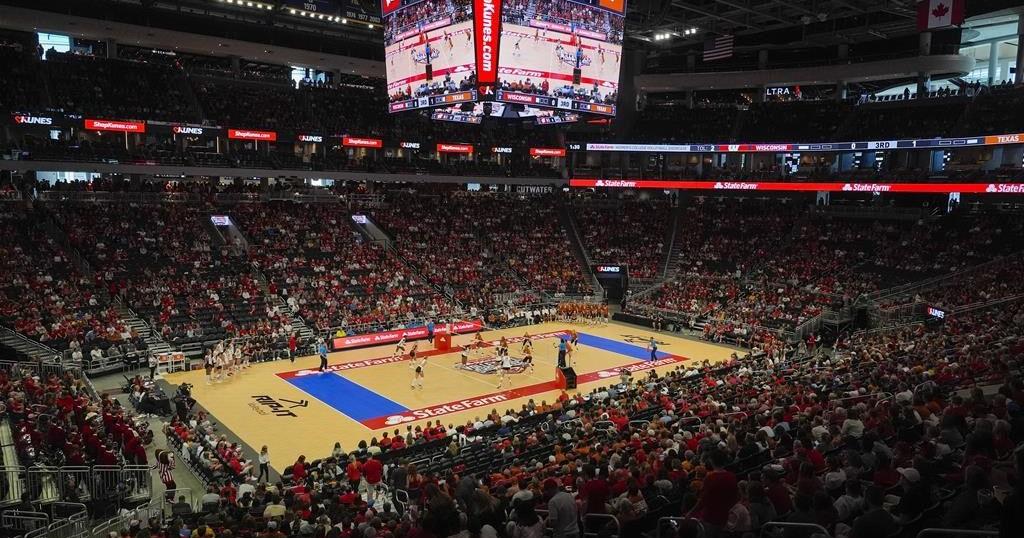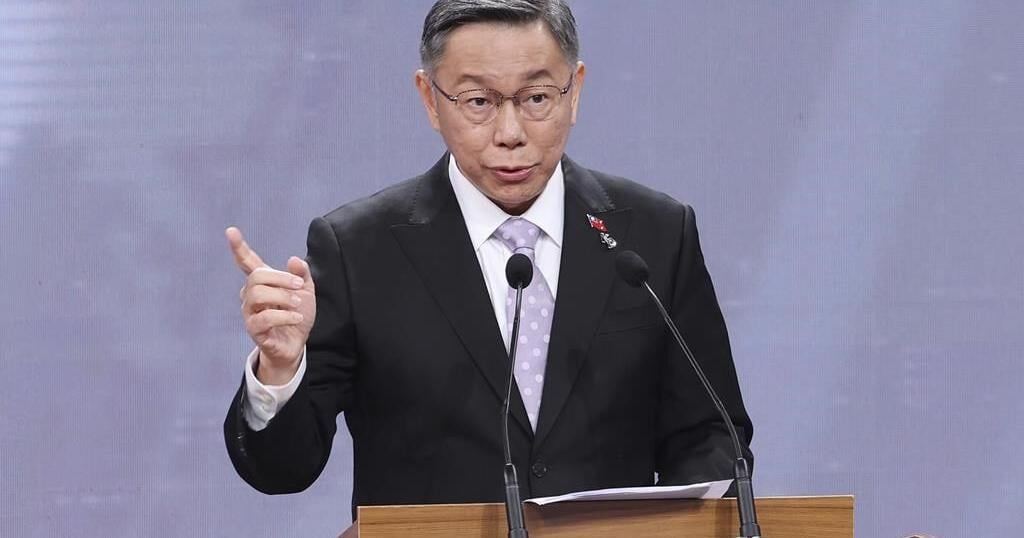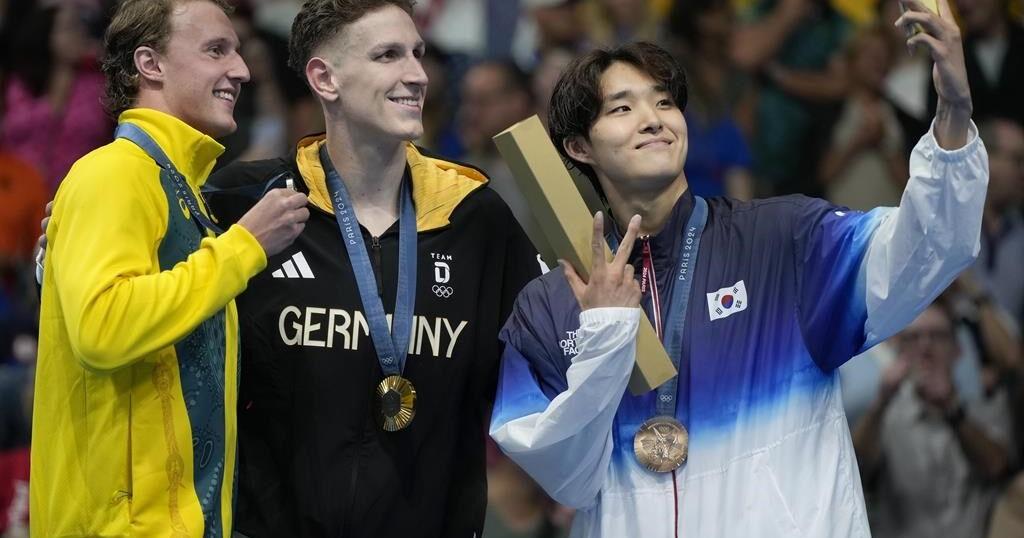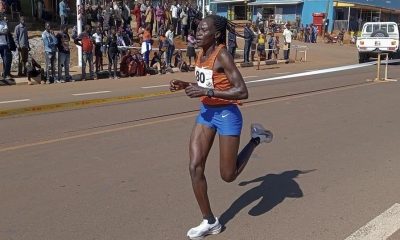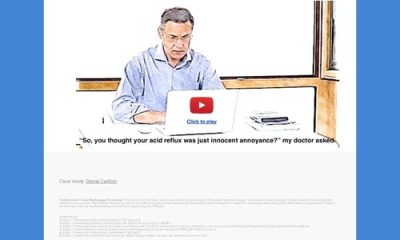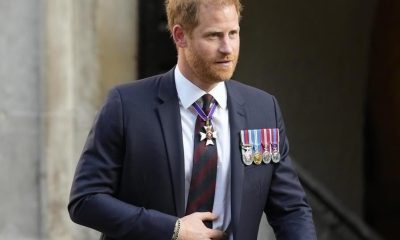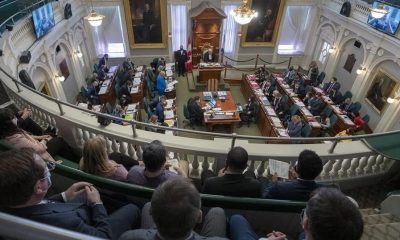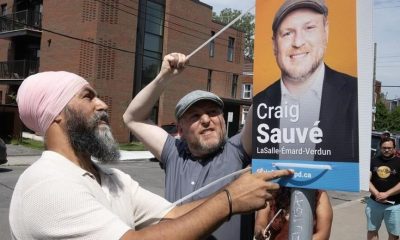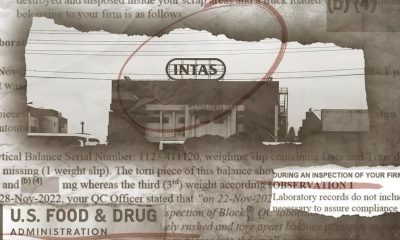A federal judge on Thursday probed the terms of a proposed $2.78 billion settlement of antitrust lawsuits against the NCAA and major conferences and revealed a potential snag in the deal, questioning whether payments to college athletes from booster-funded organizations should be restricted.
“I’m quite concerned about those,” U.S. District Judge Claudia Wilken said during a preliminary approval hearing. The hearing was the first step of a lengthy court process that could lead to college athletes getting a cut of the billions in television revenue that flows to their schools.
Attorneys representing plaintiffs, the NCAA and parties challenging the settlement appeared via video conference in front of Wilken, who was presiding from the court in Oakland, California.
The NCAA and the power conferences (Big Ten, Big 12, Atlantic Coast Conference, Southeastern Conference and Pac-12) agreed in May to settle House v. NCAA and two similar case cases that challenged compensation rules for college athletes.
The deal calls for the NCAA to foot the bill for nearly $3 billion in damages paid to former and current college athletes who were denied the right to earn money off their name, image and likeness, dating to 2016.
As part of the settlement, the conferences agreed to a revenue-sharing plan that would allow each school to direct about $21 million annually to athletes for use of their names, images and likenesses, starting as soon as next season — if the settlement receives final approval.
No ruling
Wilken did not rule on the request to grant preliminary approval of the deal. She told the NCAA and plaintiffs to “go back to the drawing board” to address issues she raised and report back to her in three weeks with solutions. An exact date for another hearing and for her to make a ruling was not set.
The settlement also takes aim at reining in so-called NIL collectives that have sprung up around major college sports, paying millions to athletes, since the NCAA lifted its ban on athletes being paid for sponsorship and endorsement deals in 2021.
The settlement allows for enforcement of current NCAA rules banning third-party, pay-for-play to athletes and payments being used as recruiting inducements. Under the terms of the deal, outside arbitrators would determine if rules were violated instead of the NCAA.
“Our position is that pay-for-play is prohibited,” NCAA attorney Rakesh Kilaru said.
“Well, but in this House settlement, if it is approved, you will be explicitly paying for play or allowing schools to pay for play. So that no pay-for-play thing is kind of not going to be there anymore, is it?” Wilken said.
Kilaru responded: “There’s still going to be a prohibition on pay-for-play, and there’s discretion for schools to make payments as they see fit under the new regime.”
“And that won’t be pay-for-play?” Wilken said, incredulously.
NCAA rules do define who is a booster and try to distinguish real business deals from NIL payments that are just a stand in for a salary. Wilken questioned whether it was possible to draw those distinctions while not denying athletes the ability to cash in on their fame.
“Is having your team win a valid business purpose?” she asked.
Plaintiffs’ attorney Jeffrey Kessler said they did not expect third-party payments from NIL collectives to decrease because of the settlement.
“If anything, we think they are going to increase,” he said.
Kilaru insisted the ability to regulate boosters and collectives was essential to the settlement.
“Based on your comments today, we have to talk about whether we have a deal,” he told Wilken.
Challenges
Wilken raised other questions regarding notification to the former and current college athletes who can claim damages and who would represent athletes who want to challenge terms of the settlement.
She mostly dismissed lawyers challenging the settlement on the basis that it did not provide enough damages.
“Everybody thinks they can get a better deal,” she said.
She also seemed unswayed by objections raised by a group of female former Division I athletes who claim they won’t receive a fair amount of the damages, which will mostly go to football and men’s basketball players.
Wilken said that was a sexual discrimination issue covered by Title IX, but not applicable to an antitrust case.
Timetable
Preliminary approval from the judge allows the plaintiffs as soon as two weeks later to begin notifying thousands of former and current college athletes that they are eligible to claim damages or object to the terms.
The NCAA and college sports leaders are already working on how to implement the revenue-sharing plan — including bringing in a third-party to manage enforcement of some terms. Preliminary approval creates a modicum of certainty, but the work of implementation will still have to be done while waiting on Wilken.
The NCAA announced Thursday as the hearing was going on that the Division I Council had discussed making changes to eligibility rules, expanding athletes’ access to agents and no longer having athletes sign a National Letter of Intent when they officially to commit to a school.
The NCAA said in a statement that it and the conferences “will carefully consider the court’s questions, which are not uncommon in the context of class-action settlements.”
The soonest Wilken could grant final approval is 150 days after notices go out to members of the damages class. But now it’ll be at least another three weeks before preliminary approval happens.
“It’s seems to me likely enough that there will be a settlement, even if there’s some changes to what’s been agreed to so far,” Wilken said.
___
Follow Ralph D. Russo at https://twitter.com/ralphDrussoAP
___
Get poll alerts and updates on the AP Top 25 throughout the season. Sign up here. AP college football: and




